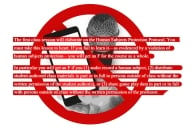You have /5 articles left.
Sign up for a free account or log in.
Everyone needs to be pestered sometimes. A new study suggests that college students may be among those who most need to be nudged to stay on track.
The study was a large-scale randomized analysis of the impact of a commercial service that provides individualized coaching to students on time management, academic goals and other subjects. The coaches call regularly and try in particular to link students’ life goals with their academic goals -- and to use the former to motivate progress on the latter.
The study -- by Eric P. Bettinger, an associate professor of education, and Rachel Baker, a doctoral student, both of Stanford University -- found that the services had a statistically significant impact on student persistence. The impact was greater for men than for women -- a potentially important finding, given the lower enrollment and graduation rates of men at many institutions.
The research was conducted on the services offered by InsideTrack, the largest such coaching service in the United States. While InsideTrack encouraged the study and its client colleges and universities cooperated with the research, the Stanford scholars were not paid by, nor was the study financed by, the company. The findings are being released today by the National Bureau of Economic Research.
The study notes that while some of the strategies employed by InsideTrack are used (and could be used) by colleges’ own counselors, many colleges lack the funds to support such efforts, and that the company is able to achieve economies of scale by focusing on this kind of student interaction.
While the colleges are not named, the authors say that they include nonprofit and for-profit institutions. Further, the authors found that the impact of coaching was evident regardless of such factors as age, SAT or ACT score, Pell Grant eligibility and merit scholarship eligibility. The students studied were more likely than all college students to be older than traditional college age, although there were some traditional-age participants as well.
To assure a true randomized trial, participating colleges agreed to create control groups. While the colleges were allowed to designate either a representative sample of their students or a subset (full time or part time, or, in one case, athletes), similar students were in the test group and control group. (In total, more than 8,000 students were in the test group and more than 5,500 in the control group.)
The results:
- After six months, coached students were 5.2 percentage points more likely to be enrolled than were other students (63.2 percent vs. 58.0 percent) -- a 9 percent gain in retention.
- The impact was evident as well after a full year, with 48.8 percent of coached students and 43.5 percent of other students still enrolled.
- The impact shrinks slightly but holds 18 months and 24 months after the start of coaching, which lasts only a year. That result is significant because some other intervention strategies to encourage student retention effective while in place lose their impact after the intervention stops.
- The impact also holds for completion rates (with completion varying by institution, and including certificate programs and associate and bachelor’s degrees). Those in the control group completed at a rate of 31 percent, compared to 35 percent of those who received coaching finished.
- Across the various measures, the impact was greater on male students than on female students. After six months of coaching, for example, the impact of coaching added 2.5 percentage points to female students' retention rates, and 6.1 percentage points to the rates for men.
One potentially significant finding, the authors write, is that paying for coaching may be more cost effective than other measures that have been shown to motivate students. For instance, studies have found some impact on student behavior -- and modest increases in student retention -- by providing need-based financial aid of $1,000 or more a year or paying students to attend counseling sessions on campus.
The cost of the coaching studied was about $500 per semester per student.
While the coaches have access in many cases to students’ course syllabuses and other academic information, the study notes that InsideTrack places an emphasis on non-academic issues. Coaches “focus significant time assessing the student’s life outside of school, which InsideTrack has found to be the leading influencer on student persistence and completion. Topics such as personal time commitments (work scheduling, primary care-giving responsibilities, and financial obligations) are common during student-coach interaction.”
The study’s results, the authors write, “are highly supportive of the potential of student coaching.”
A key result for all of higher education, the authors write, is that certain specific steps can change retention rates, and this study documents the impact of a coaching service that does not assume students know best how to manage their lives while earning a degree.
“Oftentimes in higher education, we assume that students know how to behave,” Bettinger and Baker write. “We assume that they know how to study, how to prioritize, and how to plan. However, given what we know about rates of college persistence, this is an assumption that should be called into question.”








